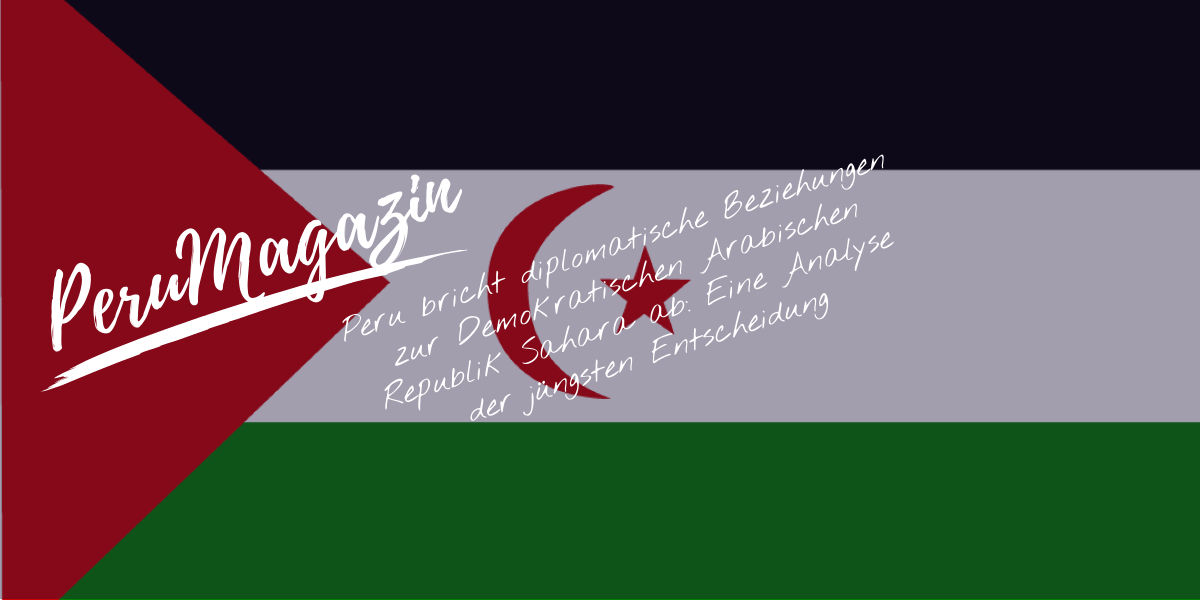
Peru breaks off diplomatic relations with the Saharan Arab Democratic Republic: An analysis of the recent decision
Diplomatic relations between Peru and the Saharan Arab Democratic Republic (DARS) have recently deteriorated dramatically due to a notable political development. The Peruvian government not only withdrew recognition from the DARS, but also severed all relations with the region. This move has caused an international stir and raises questions about Peru's diplomatic policy and stance in international conflicts.
To understand the background to this significant step, we must first look at the history of the Western Sahara conflict. The Saharan Arab Democratic Republic was proclaimed by the Polisario Front in 1976 and received recognition from around 50 states and the African Union. This happened after Spain granted independence to the former Spanish colony of Spanish Sahara in 1975. However, Morocco intervened and occupied and annexed large parts of this territory and has since considered the region to be its new southern provinces.
In the international arena, various UN resolutions have been adopted that aim to find a peaceful solution to the Western Sahara conflict, including through the possibility of a referendum on the future of Western Sahara. The DARS insists on its independence, while Morocco sees the area as an inseparable part of its territory.
Peru's recent decision to withdraw recognition from the DARS and cut off diplomatic relations came after discussions with Moroccan Foreign Minister Nasser Bourita. The Peruvian Foreign Ministry justifies this decision by saying that it acts in accordance with international law and UN resolutions on the Sahara issue. It emphasizes respecting the territorial integrity of the Kingdom of Morocco and supporting its national sovereignty, including the autonomy plan to resolve the conflict.
Reactions to this move have been mixed. Some countries and organizations maintain their recognition of the DARS, while others, such as Peru, have changed their position. This move has led to accusations that the Peruvian government adopts a pro-colonialist stance and does not sufficiently respect the DARS' independence aspirations.
What is particularly interesting is the fact that this decision was made in a political context characterized by a transition of power in Peru. The new government of Dina Boluarte took power in December after the overthrow and imprisonment of President Pedro Castillo. There is speculation that the decision to withdraw recognition from the DARS could also be due to domestic political considerations.
#Peru #DARS #Diplomacy #Western Sahara Conflict #International Relations #International Law #UNResolutions #Morocco #Autonomy Plan #FrentePolisario #Sovereignty #Conflict Resolution #Foreign Policy #Politics #Change of Power #Sahara Question #Recognition #Geopolitics #DinaBoluarte #PedroCastillo #peru #perumagazin #topet #topetversand



Leave a comment